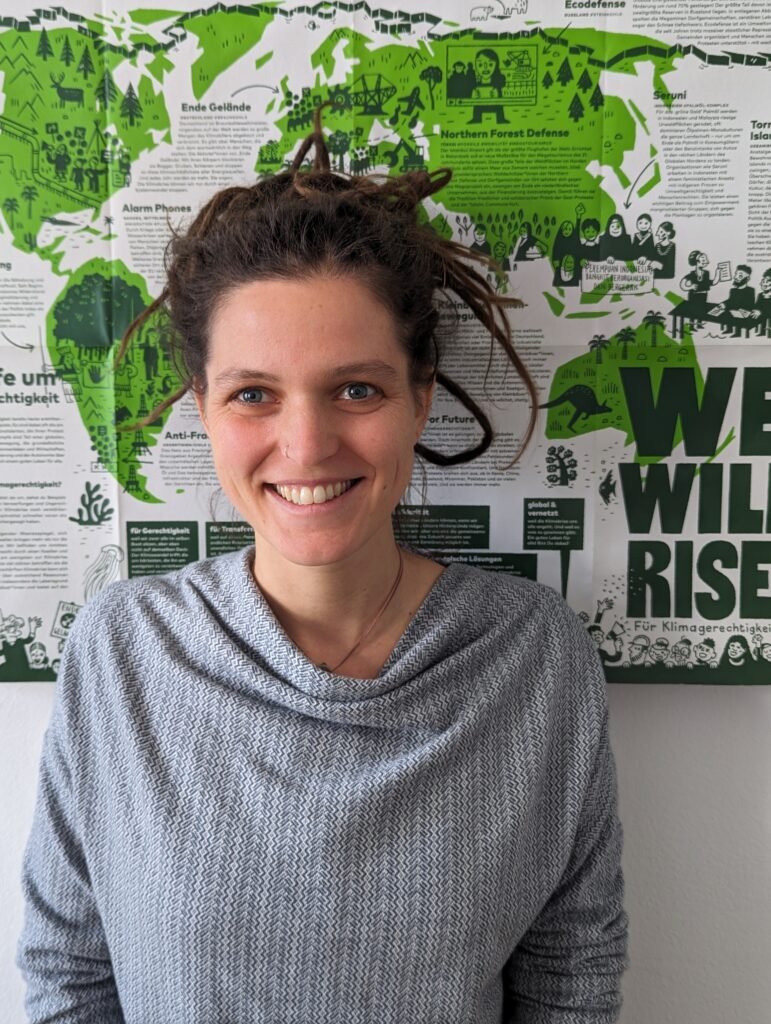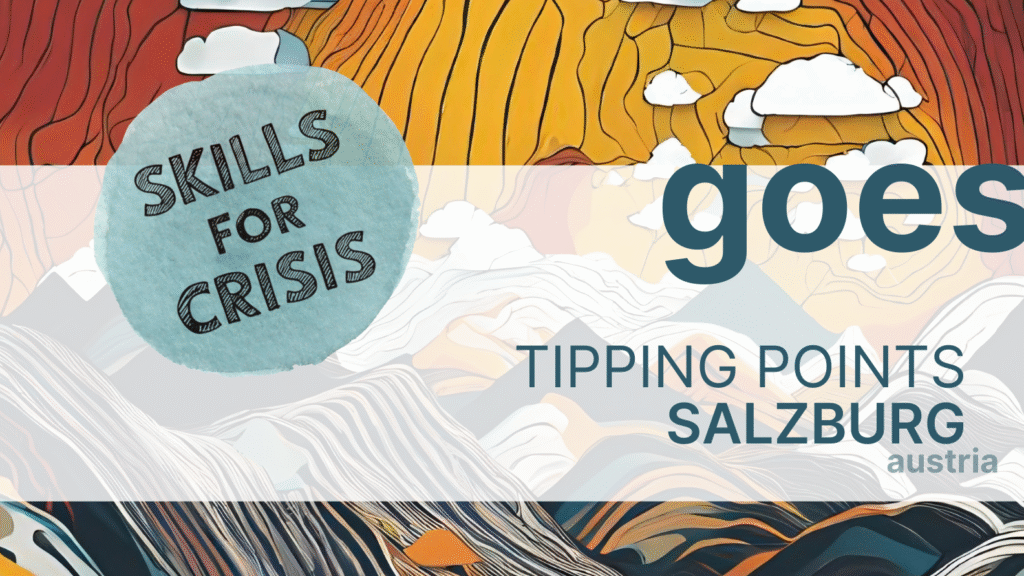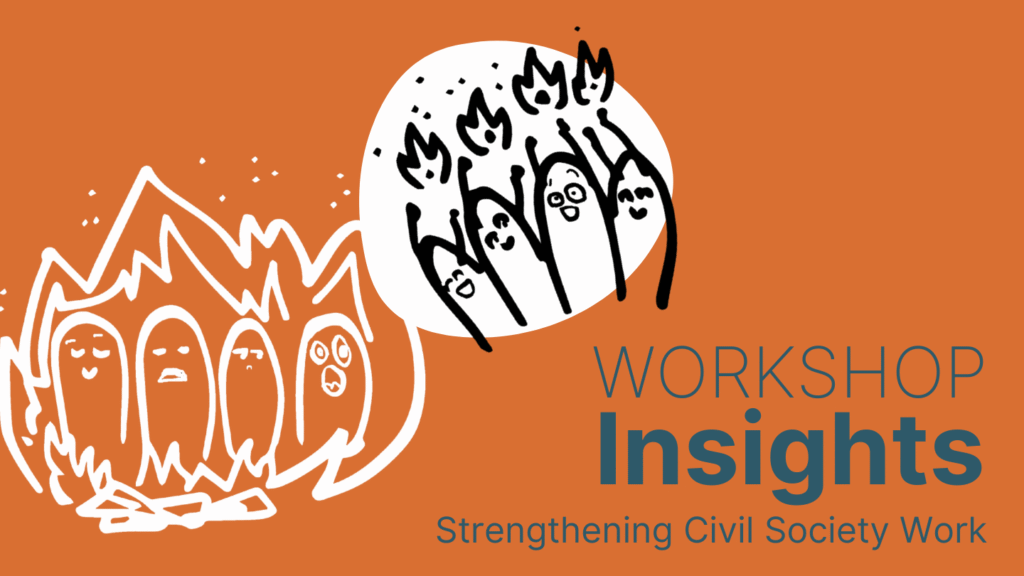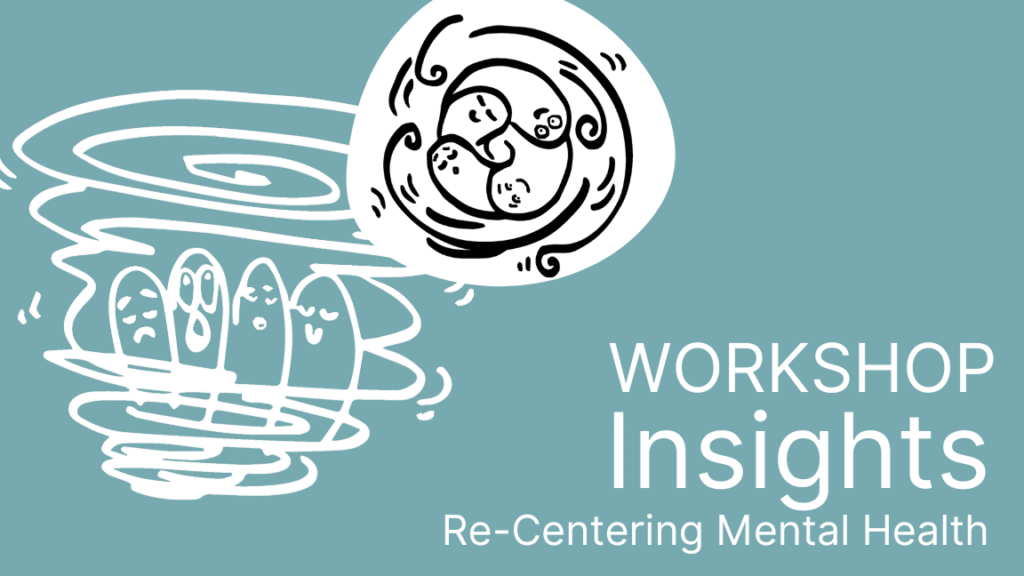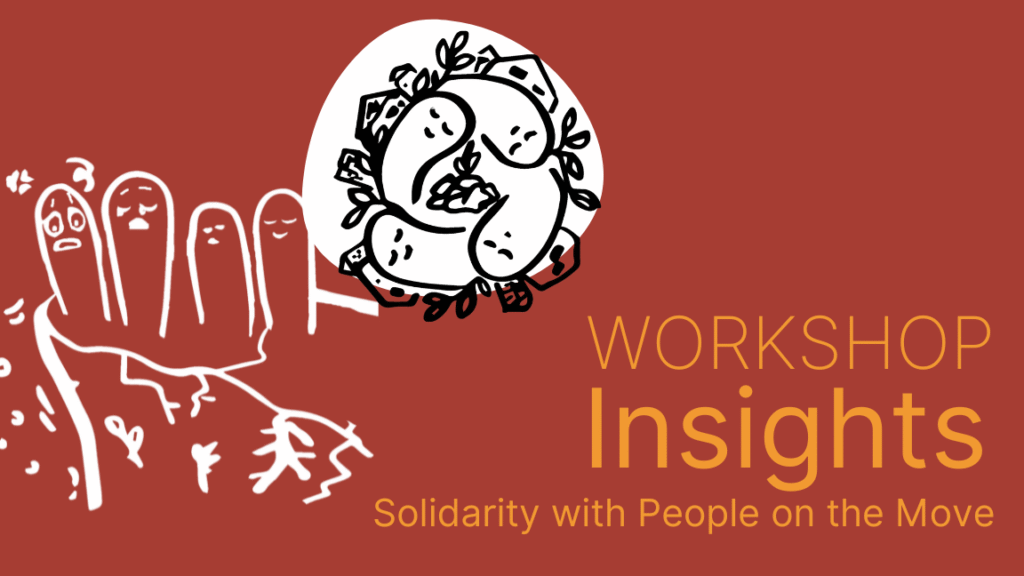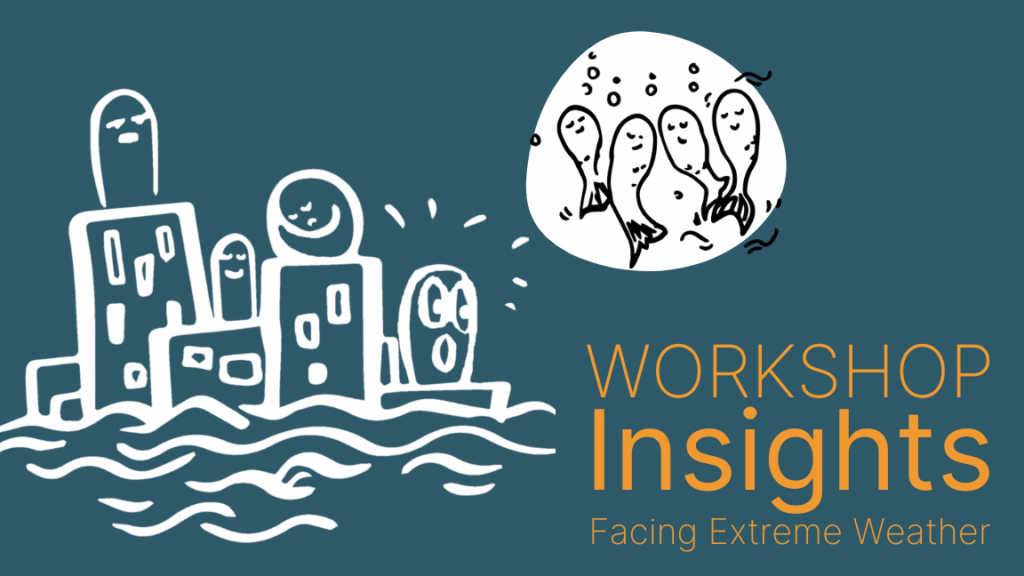The offline Workshop was hosted by Adama Dicko, Camila Schmida Iglesias and Laura Grossmann.
The online Workshop was hosted by Adama Dicko and Laura Grossmann.
The Workshops are in the past. Thanks to everyone attending and the facilitators! Below you can find some inspirations, a recording of the online workshop and insights.
Content Short
With continuing crises and more and more strain on the world’s resources, the exploitation of certain countries by others will keep increasing. In this climate it is important to strengthen our abilities to struggle together for transnational justice. This workshop tries to explore a few facets of this quest. Based on insights of some first hand accounts, we will explore which skills we need in order to better understand each other and fight for justice together: How can we understand each other’s point of view? How can we bridge cultural and language barriers and how to stick together, despite our differences?
Small Journal of the Workshop
You can find the presentation with the workshop timetable, methods and background information, as well as inspiring pictures and insights by clicking on the following link: https://skills4crisis.org/wp-content/uploads/2025/08/Skills4Crisis_WS_TransnationalJustice.pdf
Welcoming and Introductions
The workshop began with an extensive round of introductions. Both facilitators and participants shared their background and previous knowledge/questions on the topic at hand. Then, we provided in-depth information about the whole Skills4Crisis project. We shared definitions of collapse, crisis, disaster and vulnerability. This was followed by a lively discussion.
Understanding Vulnerability
Vulnerability usually means a group of people is MORE LIKELY to be affected by a crisis or a disaster. It does not mean that the group WILL be affected. Participants discussed in what way ones own awareness about a vulnerability already has an effect on ones life and if it might even increase said vulnerability.

Voices from the Ground: Sahel and Cuba
This theoretical foundation was followed by first hand accounts of the situation in the Sahel region and Cuba. What are the crises people face in the respective areas, how are they fought and what should we – as active civil society – learn from those struggles. A crucial point in both accounts were the different perceptions of people living there, (western) media and the respective diaspora communities. The latter again often differ from Europe to the US, depending on the local political context and the conditions of migration.
Towards Collective Liberation
On the end, we asked ourselves how we can better understand each other, see each other and work together for collective liberation. We did not find THE answer, but we all agreed that more time spent together, more conversation, more connection is unavoidable first and important step.
In the spirit of this insight, the evening was spent with a common dinner from Western Africa and a participatory concert of Adama Dicko Sahel Melodies, featuring Elso Elso from Burkina Faso.
Aha-Moments
We, as activists and organizers in Europe, need to build strong links to different diaspora communities. They know their respective local contexts and can help us to see the world with different lenses.
Preparing a workshop on transnationalism in a transnational team is already an exercise in transnational cooperation.
Skillshare: Method for self-reflexion: “The bus in us”
You can download a .pdf with the Guide in English language by clicking on the following link: https://skills4crisis.org/wp-content/uploads/2025/08/Method-for-Self-Reflexion-the-Bus-in-Us.pdf





Background
- A method developed by Vanessa Machado de Oliveira and the “Gesturing Towards Decolonial Futures Collective”.
- Can be found in the book: Hospicing Modernity. A book informed by indigenous knowledge, explicitly written for people in low-intensity struggles.
- Based on non-western and non-antropocentric froms of psychoanalysis.
- In the capitalist modernity, in which we live, we are taught to be rational and always control our emotions and bodies and have an “objective” glance at the world.
- This hurts our capacity to deal with uncertainty, plurality and the unknown.
What for?
- The exercise helps us to break with a need for coherence, clarity, simplicity within ourselves.
- Practices the skills to hold complexity, contradictions, ambiguities in ourselves.
- An attitude we need also in connection with the world
How does it work?
- The bus is your inside
- there is a driver and many passangers
- the passengers embody events that have shaped your life, including unresolved traumas, childhood events, significant others, etc.
- Every one has an opinion on a certain topic.
- Some passengers sit in the front and are loud and well-known; some sit in the middle and are only audible on certain occasions; and then there are those who sit in the back and may even be unknown to the driver.
Do it!
- Think about ___________________
- Look at your bus? What does it look like?
- If you want, you can draw it
- Who is driving the bus?
- Do you know the passengers? What are they saying?
- Focus on three different passengers with different reactions. Draw them, if you like
- Sit next to them and find out what they say and feel
Workshop online – Recording
We recorded the input and published it on Youtube. The content is in the English language. On Youtube you can choose English Subtitles with a Click on the Symbol at the bottom saying “CC”
Speakers / Workshop Facilitators
Adama Dicko
Adama Dicko is a musician from Burkina Faso, in the heart of the Sahel region of West Africa. Now living and working in Austria, Adama channels the spirit and rhythms of his homeland into his music, reaching audiences far beyond his roots.
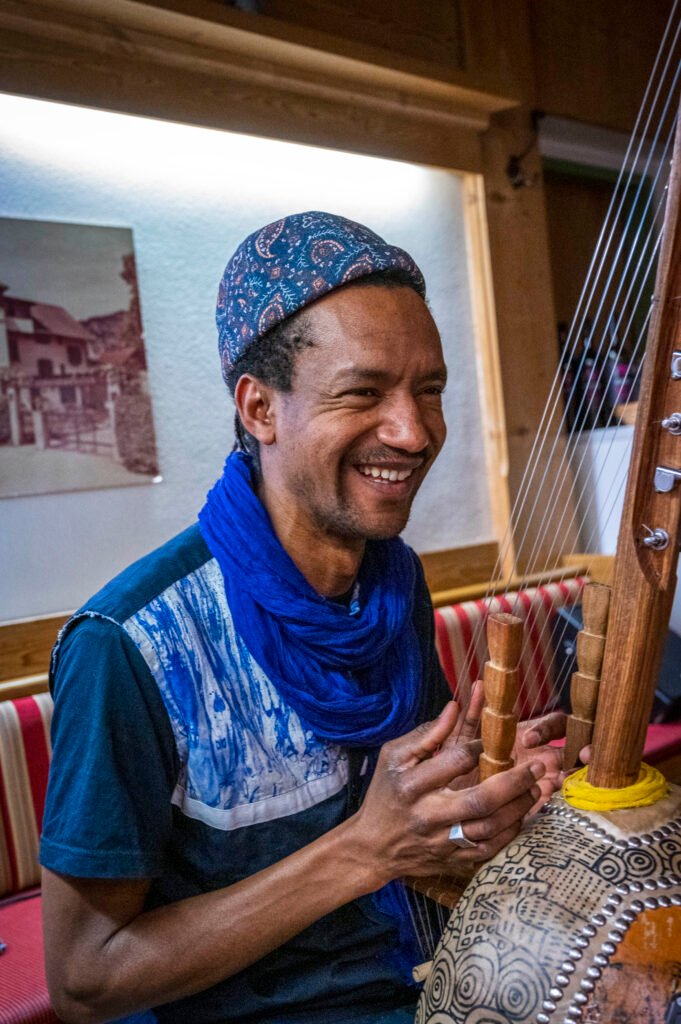
During his travels across West Africa, he developed a unique musical style that blends blues and reggae, creating a sound that is both soulful and deeply personal. Through his songs, Adama shares stories of his journey—capturing the landscapes he crossed, the people he encountered, and the life experiences that continue to inspire his art.
Camila Schmid Iglesias
Camila Schmid Iglesias is an activist, political educator, content creator, and scholar with a focus on anti-racism, feminism, intersectionality, decoloniality, social movements, diaspora, and Cuba. She writes texts, gives lectures, facilitates workshops, and supports anti-discrimination processes both online (@camelanin on Instagram) and offline with organizations such as Re-Define Racism and the D!SRUPT association.
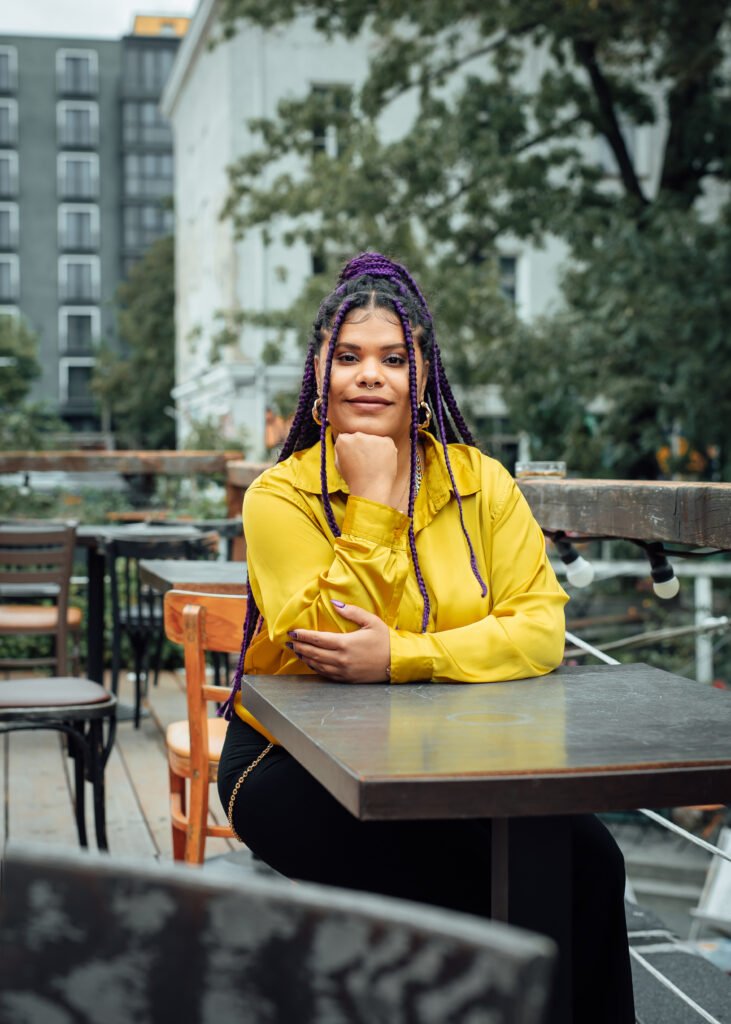
Laura Grossmann
is an activist for anti-fascism and climate justice. As part of the association “Humus – fertile soil for change” she offers trainings, facilitation and consulting for political groups, focusing on group processes, structures and group dynamics. Alongside her political activism, she works as organisation developer and in the educational sector. She grew up in Austria, lived, worked and studied there, as well as in the UK and Madagascar.
